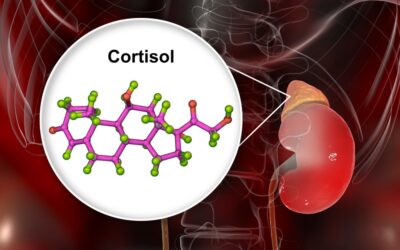It’s so easy to be tempted by the allure of comfort. In fact, technology and society have convinced us that this is of the upmost importance. You’re cold? Turn on your thermstat. Don’t like that noise? Drown it out with “white noise”. Feeling hungry? No problem. The nearest food establishment is mere steps away. Comfort has become a “way of life”. But is it the most beneficial way of life?
In a world where we often strive for perfection and seek to eliminate all forms of stress, there lies a fascinating concept that challenges our conventional thinking, hormesis. Hormesis is the principle that exposure to low doses of stressors can actually be beneficial for our health. It suggests that the right amount of challenge, whether it be physical, mental, or environmental, can trigger adaptive responses in our bodies, improving overall health and resiliency.
In this article we go deep into the manner in which “stress” is not only beneficial but necessary to live a life free of disease. Additionally, you will learn action steps to harness the health benefits of hormesis unlocking your full potential for vitality, resilience, and longevity.
What is hormetic stress?
We all know that chronic stress on the mind and body is the root cause of a variety of health conditions. However, there is growing evidence that a little bit of stress is necessary to facilitate cellular processed that improve the health and function of our cells. This concept is called hormesis.
“Hormesis is defined as the phenomenon in which repeated exposure to low doses of a stressor, that is toxic at high doses, induces stress responses in biological systems, which could eventually be “health beneficial” for the system.”

Examples of how it works in different areas of life
In other words, too much of a good thing has the potential to cause harm. On the other hand, not enough of that “said thing” might also cause harm. But there is this zone right in the middle that is just right. Not surprisingly, often referred to as the “goldilocks principle”.
But don’t take my word for it. You have probably experienced this or at least heard of how this works in real life.
For example, not getting enough exercise causes harm to almost every system in the body. On the other hand, performing continuous high-intensity exercise also comes with some potential harm.
Evidence has shown that a little bit of mental or emotional stress trains our brain to cope better with future stress. On the other hand, prolonged stress where we believe our life is unmanageable, is also linked to several chronic diseases.
Without “intellectual stress” (cognitive challenges), the brain appears to atrophy. As the saying goes, if you don’t use it, you lose it. However, feeling overwhelmed by cognitive challenges can potentially lead to brain degradation.
How does the hormetic effect work?
Ok, so now that we can identify real-life examples of the hormetic effect, now let us go a layer deeper and understand the adaptive (positive) changes that occur cellular level in response to low-dose “stress”.
Mitochondrial Function
To fully understand hormetic stress at the cellular level, the story must begin with the mitochondria. Mitochondria are organelles found inside every human cell. Mitochondria are responsible for producing the energy the cells need to function properly. A byproduct of this energy production system is a free radical called reaction oxygen species (ROS). Free radicals are unstable molecules that in excess are harmful to the cell. However, at low levels, free radicals kill viruses, bacteria, and damaged cells. The release of free radicals from the mitochondria during cellular respiration is also responsible for the cell signaling that sensitized a muscle cell to insulin thus allowing glucose to enter. The mitohormesis hypothesis suggests that ROS is beneficial at low levels and when ROS escapes from the mitochondria it promotes “cellular fitness” and may extend lifespan.
Oxidative Stress
Now, to reiterate, the production of free radicals is normal. And excess is bad. This is where the antioxidant defense system comes in to save the day. Antioxidants neutralize free radicals. Glutathione is an antioxidant that is involved in neutralizing free radicals. This will become important when we get to the lifestyle section a little bit further down. All of that said, when there is an imbalance between free radicals and antioxidants, the result is oxidative stress. Prolonged or sustained oxidative stress causes damage to DNA, protein, and other components of a human cell. Some scientists believe this is the cause of aging. On the other hand, low levels of oxidative stress in a cell seem to promote a variety of mechanisms that protect and even promote cell growth.
One explanation for the benefit of oxidative stress on cell function is it appears to cause the release of proteins that bind to DNA and activate gene expression (transcription factor NrF-2). ROS appears to “preserve” NrF-2 from breaking down as quickly. NrF-2 travels to the nucleus of the cells, binds to DNA which triggers the production of glutathione, a powerful antioxidant mentioned above. On the other hand, excessive stimulation of NrF2 can be harmful to the cell.
Hypoxia
Hypoxia, is a state of decreased oxygen availability. This deprived oxygen state in a cell causes mitochondria to release excess amounts of free radicals. Too much time in a hypoxic state results in cell damage and in some cases cell death [ie: stroke, diabetic ulcers, myocardial infarction (heart attack)…etc]. Case and point, sleep apnea is defined by periods of intermittent hypoxia and this is linked to cardiovascular disease and liver diseases. However, there is evidence that intermittent hypoxia can protect the heart from ischemia-reperfusion injury. Furthermore, cardiovascular exercise has been shown to improve the heart muscle’s ability to take up and utilize oxygen in patients with severe cardiovascular disease.
Glutamate
Glutamate is an excitatory neurotransmitter that allows nerve cells to communicate with one another. This chemical is essential for motor functions, learning, and memory. However, high levels of glutamate is neurotoxic and cause nerve cells to die. This excitotoxicity is believed to play a role in Alzheimer’s disease, stroke, and Parkinson’s disease.
Developmental Hormesis
Developmental hormesis is a phenomenon where exposures to “stressors” early in life make us more resilient throughout life. The hygiene hypothesis is one example of developmental hormesis where “exposure to microorganisms early in life protects against allergies by strengthening the immune system”.
Heat Shock Response
Every cell is made up of proteins that fold in a particular manner that enables cells to function properly. Protein misfolding ultimately leads to cell damage and death. Heat shock response is a cell response that combats the effects of protein misfolding. NrF-2 (mentioned above) is involved in upregulating certain heat shock proteins
HPA Axis and the hermetic effect of mental “stress”
The hypothalamic-pituitary axis (HPA axis) is a part of the brain responsible for responding to a perceived “stress”. When this area of the brain is stimulated it activates other brain regions to release a series of hormones involved in stress modulation. One of which is glucocorticoids. Glucocorticoids are responsible for providing the energy to address the perceived stress. On the other hand, over-activation of this neural network (ie: chronic stress) can cause high blood pressure and insulin resistance. Furthermore, activation of the HPA axis suppresses the immune system in a way of “reallocating resources” thus potentially weakening the immune system.
Glucocorticoids and more generally the neural network associated with modulating stress seem to have both positive and negative impacts on learning and memory. Yet, another condition where a sweet spot exists. In this case, the “sweet spot” might be knowing that the mental/emotional stress is manageable.
How does hormetic stress benefit our health?
All of that said, it is evident that hormetic stress has the potential to boost the immune system, improve cognitive function, enhance physical performance, reduce anxiety, and increase our health span (number of years free of disease and disability).
Ways to incorporate hormetic stress into our daily lives
Now, the most important factor to understand about hormesis, as it relates to health, is the dose makes the poison. In other words, too much or too little of a dose is potentially harmful. The goal for scientists is to find the dose that is just right. With that said, there are ways to incorporate hormetic stress into our daily lives to improve the quality of our lives.
Exercise
Exercise is the most important and provides the most “bang for your buck” when it comes to hormetic agents. When we exercise we are exposing the body to metabolic (energy utilization), thermal (heat), hypoxia, and oxidative stress.
This promotes a cascade of chemical events that increases mitochondrial efficiency and concentration. The hypoxic stress results in improved uptake and utilization of oxygen. Furthermore, exercise causes the release of ROS from the cells building the immune system.
However, there is also evidence that excessive high-intensity exercise can result in too much ROS and cause muscle degradation, and a weakened immune system…… yes, goldilocks.
Dietary Energy Restriction
Animal studies have shown that DER (dietary calorie restriction from either intermittent fasting or caloric restriction) can increase resistance to stress in cells of animals. Nerve cells in the brains of animals maintained on DER showed increased resistance to neurotoxins implicated in epilepsy, Huntington’s disease, Parkinson’s disease and Alzheimer’s disease. Human studies, although not as controlled have also demonstrated that DER decreased inflammatory markers.
Calorie restriction causes “stress” that appears to activate almost every beneficial cellular mechanism noted above.
The type of intermittent fasting or dietary caloric restriction varies between studies and is not a one size fits all. With that said, as little as a 10 hr fasting window in every 24 hour period has been shown to benefit from this hormetic effect.
Mental Stress
A growing body of literature is showing that low to moderate levels of mental stress may be beneficial. That is so long as someone does not feel overwhelmed or that their circumstances are outside of their control. Some studies have shown that cognitive functioning improves when someone shifts from low to moderate level of stress. Case and point, think about a past experience where the approaching deadline on a project seemed to supercharge your abilities to complete said task. Yes, hormesis.
Psychological stress also seems to have a sweet spot in facilitating beneficial adaptations. Some studies have shown that lifetime adversity is positively correlated with overall health and well-being.
Conclusion
As we conclude our exploration into the intriguing realm of hormetic stress and its profound impact on our health, it becomes evident that embracing the concept of hormesis and incorporating lifestyle factors that induce controlled stress can be a transformative approach to wellness. By challenging ourselves physically, mentally, and environmentally, we can activate powerful adaptive responses within our bodies leading to enhanced vitality, resilience and longevity.
From engaging in regular exercise, exposing ourselves to dietary energy restriction, to taking on new intellectual challenges, the array of hormetic lifestyle choices is vast and promising. By understanding and harnessing the potential of hormetic stress, we open the doors to a healthier and more fulfilling existence. So, let us step out of our comfort zones, embrace the beneficial stressors, and embark on a journey toward optimal well-being, guided by the remarkable principle of hormesis.
Whispers to Wonders: Unraveling the allure of ASMR
You may have come across the term “ASMR” at least once, particularly if you’ve been on certain corners of social media. Be it TikTok, Instagram, or even YouTube, ASMR videos have been all the rage. Tapping, scratching, whispering, chewing—ASMR (autonomous sensory...
Silent Storms: The Atypical Form of Depression You Need to Know More About
Approximately 280 million people suffer from depression on a global scale. The figure is harrowing but doesn’t give you the complete picture because depression isn’t always visible. Sometimes, people experience symptoms related to it but can’t pinpoint what they’re...
Understanding The Link Between L-Theanine and Stress
Introduction Today, stress is one of the leading causes of physical challenges. Yes, what used to be a feeling of tension or a state of mind when faced with a difficult situation can impact you physically and even how you react and handle things emotionally and...
Tea-rific Health Benefits of Drinking Green Tea
Around 600,000 tonnes of green tea is consumed annually — a figure that has grown by approximately 20% in the last ten years. When you understand all the benefits of drinking green tea, its popularity isn’t surprising at all. This grassy, flowery, and earthy...
The power of protein on weight management
Weight management can be a challenging journey for many individuals, but with the right approach, achieving a healthy and sustainable weight is possible. Among the various factors that influence weight loss success, the role of protein cannot be overstated. Protein is...
Progressive Muscle Relaxation: Guide to Optimal Health
In today's fast-paced and stress-ridden world, finding effective methods to promote relaxation and restore balance in our lives has become paramount. One technique that has gained considerable recognition in recent years is Progressive Muscle Relaxation (PMR). PMR has...
Unveiling the Health Secrets Within: Understanding the Gut Microbiome
The human body is home to trillions of microorganisms, forming a complex ecosystem within our gastrointestinal tract (GIT) known as the gut microbiome. Long overshadowed by the spotlight on human cells, this intricate community of bacteria, viruses, fungi, and other...
Exploring the Connection Between Cortisol, Stress, and Overall Health
The “Longevity” game is not about living long, but living “well”. And the hidden player calling the shots might be cortisol, aka the stress hormone. As stress permeates our lives, its effects on our overall health become increasingly apparent. In this article we will...
Managing Stress with Diabetes Made Easy: Tips That Tip the Scale in Your Favor
Over 537 million people around the world live with diabetes. The condition affects a whopping 10.5% of the adult population, and there’s no denying how difficult it can be to manage it. One day, you’re living life to the fullest—eating your favorite cake, regularly...
Mindfulness: Health Benefits and Getting Started
Understanding Mindfulness, Its Benefits, and How To Get Started Mindfulness. We hear this word so often that it’s easy to dismiss it as the latest New Age fad. But before dispensing with the idea altogether, consider that mindfulness-based cognitive therapy has been...











